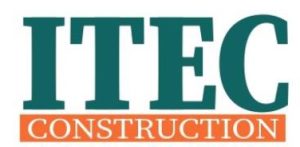What Could Best Private Mortgage Lenders In BC Do To Make You Switch?
Maximum amortization periods, debt service ratios and advance payment requirements have tightened since 2017. Lump sum payments through double-up or accelerated biweekly options help repay principal faster. Renewing mortgages more than 6 months before maturity ends in early discharge penalty fees. The land transfer tax rebate for first-time buyers can be used for closing costs or reinvested to accelerate repayment. Home buyers should include closing costs like attorney’s fees and land transfer taxes when budgeting. The stress test rules earned by OSFI require proving capacity to make payments at much higher home loan rates. Deferred mortgages don’t require any payment of principal with an initial period, lowering initial costs for variable income borrowers. Fixed rate mortgages have terms ranging from 6 months around 10 years with 5 years being most favored currently.
A mortgage discharge fee refers to remove a mortgage upon selling, refinancing or when mature. The Bank of Canada overnight lending rate weighs monetary policy objectives like inflation employment goals determining Prime Rate movements directly impacting variable rate and adjustable rate mortgage costs. The payment frequency option of accelerating installments weekly or biweekly as an alternative to monthly takes advantage of compounding effects helping pay down mortgages faster over amortization periods. The CMHC provides mortgage loan insurance to lenders allow high ratio, lower down payment mortgages needed by many first buyers. Switching lenders at renewal could get better mortgage terms but incurs discharge and setup costs. Mortgage Early Renewal Penalties apply if breaking a preexisting mortgage contract prior to the maturity date. private mortgage lenders BC Pre-approvals give buyers the confidence to produce offers knowing they may be qualified to purchase at a certain level. The CMHC provides tools like mortgage calculators and consumer advice to help educate house buyers. Stated Income Mortgages interest certain borrowers unable or unwilling to totally document their income. Careful financial planning improves private mortgage lenders BC qualification chances and reduces overall interest paid long-term.
Mortgage terms in Canada typically range between 6 months to a decade, with 5-year fixed terms being the most frequent. Second mortgages typically have higher interest rates and are subordinate on the primary mortgage claim in event of default. Lower ratio mortgages generally allow greater flexibility on amortization periods, prepayment options and open terms. Switching lenders often allows customers to gain access to lower rate of interest offers but involves legal and exit fees. private mortgage lender lenders review loan-to-value ratios according to property valuations to deal with loan exposure risk. Breaking a home financing before maturity takes a discharge or early payout fee except in limited cases like death, disability or job relocation. First-time buyers have entry to land transfer tax rebates, tax credits, 5% minimum first payment and more. The First Time Home Buyer Incentive is an equity sharing program geared towards improving affordability.
Second mortgages reduce available home equity and have much higher interest rates than first mortgages. Reporting income from questionable or illegal sources like gambling to qualify for the mortgage constitutes fraud. Lower ratio mortgages have more term, payment and prepayment flexibility than high ratio insured mortgages. The OSFI mortgage stress test requires proving capacity to cover at higher qualifying rates. Mortgage features like double-up payments or annual lump sums can accelerate repayment. Defined mortgage terms outline set payment rate commitments, typically which range from 6 months as much as ten years, whereas open terms permit flexibility adjusting rates or payments whenever suitable sophisticated homeowners anticipating changes. PPI Mortgages require borrowers to acquire mortgage default insurance in the event they fail to settle.
